Combining Computer Programming and Creativity, the new B.S. in Game Design and Development Graduates its First Class
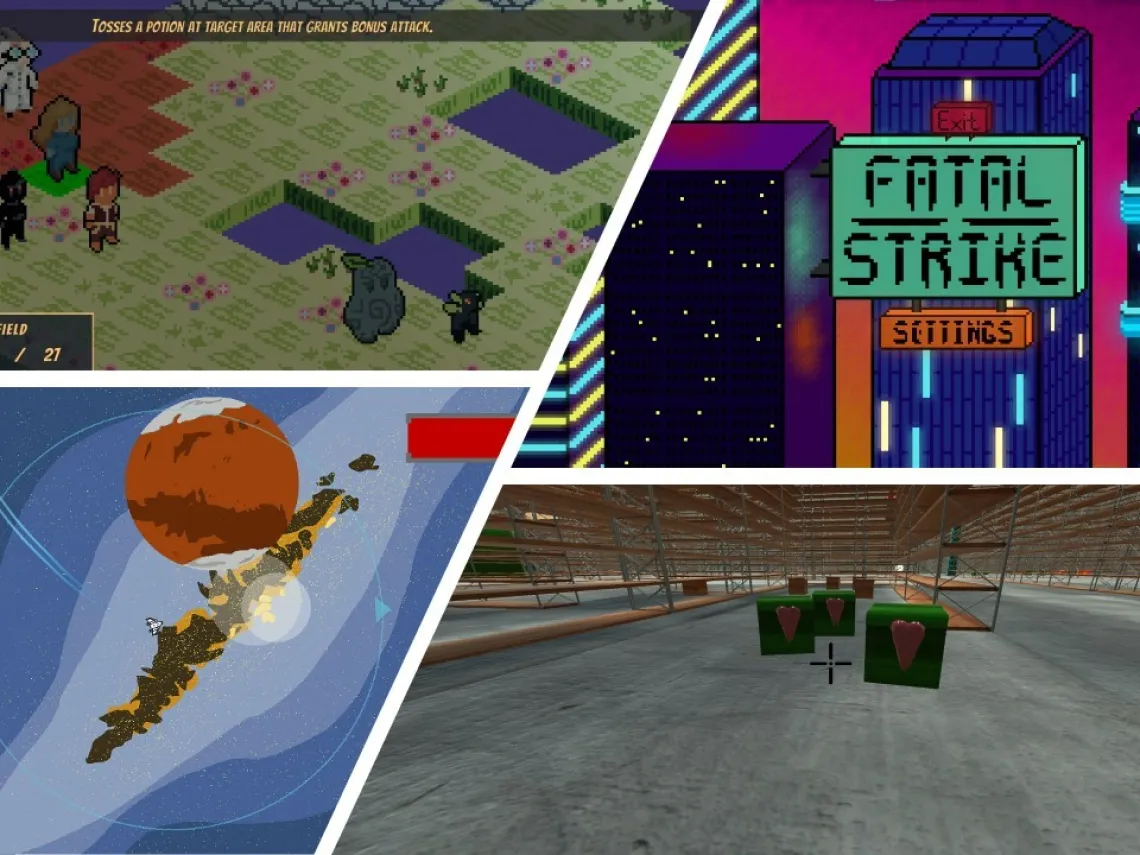
Computer game images created by 2022 graduates from the Game Design and Development major.
Established in fall 2020, the B.S. in Game Design and Development major in the School of Information, provides undergraduate students with the real-world skills and experience needed to create virtual interactive environments that span across devices and platforms.
In the major, students learn how to create games for entertainment but also virtual reality simulations for training, education, healthcare, and other purposes. For example, core Game Design and Development faculty members Lila and Ren Bozgeyikli study virtual reality simulations for people with traumatic brain injuries in the Extended Reality and Games Lab.
This spring, the first class of five students are graduating with a degree in Game Design and Development, with two more students graduating in the summer. The students explained how the blend of technical skills and creativity offered in the major made it a fit for their career goals.
Creative Coursework
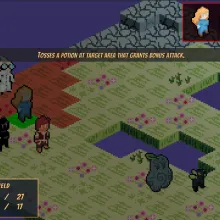
A screenshot of an image from “Dungeons of Akazarn” from Javier Perez’s capstone project.
A veteran of the U.S. Navy, Javier Perez switched his major from Computer Science to Game Design and Development once it became available.
“Once I started taking game programming classes, it quickly became clear that this department was interested in letting me experiment and grow based on my own game interests,” said Perez, who is minoring in Computer Science. “These are honestly the most difficult classes I have taken, but they have also been the most rewarding and fun I've had at the university.”
Perez said his interactions with lecturer Drew Castalia had the largest impact on his college career. “He set ablaze my passion for learning and encouraged me to dive into advanced programming architecture,” Perez said.
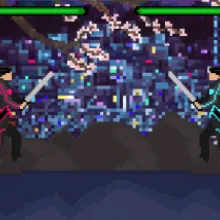
Amir Ameri, who double majored in Game Design and Development and Computer Science, is also president of the university’s Video Game Developer’s Club.
“I chose to major in Game Design and Development because I have a passion for designing games and I thought that this would be a great way to sharpen my skills,” said Ameri. “I have enjoyed working on hands-on projects for months and then being able to show the finished product to players and seeing what they think.”
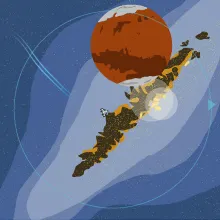
A screenshot on the homepage of the game “Stellar Drift” Nathan Whinnery’s capstone project.
Nathan Whinnery always loved playing and making his own games, ranging from backyard games when he was little to “simple games using another game's freebuild/creative mode,” he said.
Whinnery started at UArizona in Engineering but wanted to transition to something more game related. He moved into Computer Science but when the Game Design and Development major became available “I instantly switched with little hesitation.”
“One of my favorite parts of the major has been creating games with freedom,” Whinnery said, who minored in Computer Science and Mathematics. “Some classes have an open approach, like "create any game you want, however you want, but it must include “a, b, c" so now we can solve problems in a variety of different ways.”
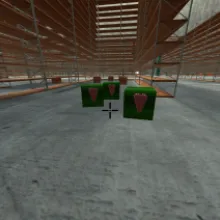
Brendan Schofield initially majored in Electrical Engineering and then Computer Science before choosing Game Design and Development because of its emphasis on creativity.
“ISTA 251 was the class that really roped me into the major for sure, where we studied essentially the science of how to make games fun for players,” Schofield said.
“I decided to stick with GD&D because of the incredible professors and lecturers, being able to make fun and creative games in class, and still learn about programming,” Schofield said. “It's also a plus when the other students in the program are just as passionate as you about being creative.”
What’s Next?
Perez is applying for various jobs in game development that will allow him to work on projects that are “fun and rewarding.”
Ameri also wants to get a game design job after graduation. “I want to work my way through the industry until I can be a designer on a competitive fighting game, especially on the new Riot fighting game,” Ameri said.
Whinnery is hoping to teach game design and develop his own games.
“In the long run I would like to be an environmental artist for a game company – those are the people who take various assets (trees, boxes, buildings, any visible thing inside a game world) and create the physical levels that the players explore,” Whinnery said.
Schofield says his career plans after graduation are still up in the air, but he wants to “work on my own skills and build up a portfolio.” He hopes to do an internship with a games company or work as a freelancer.
Schofield is happy he decided to major in Game Design and Development: “I think it's an incredible program and I have never learned so much in my life.”
Students' Capstone Projects
To learn more about the video games created by the students for their capstone projects, visit the School of Information's YouTube page.

